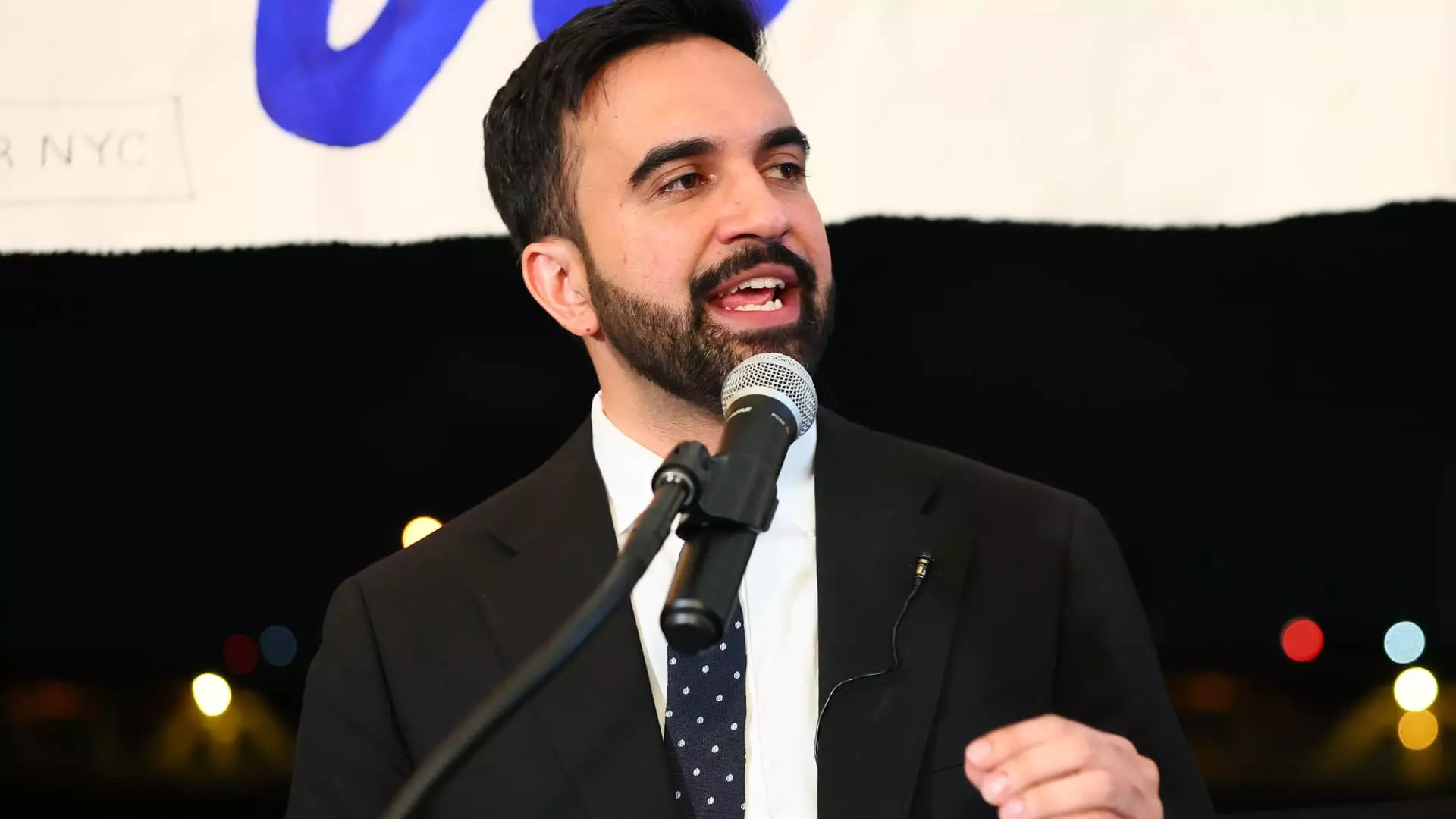The recent movements in Flagstar’s stock—a notable 6% drop—serve as a stark reminder of how intertwined the banking and political landscapes have become. The impact of political outcomes is often underestimated in financial markets, particularly for regional banks that are vulnerable to localized economic policies. Flagstar, which emerged from the ashes of New York Community Bancorp, stands at a precarious crossroads, caught between the ambitions of a radical mayoral candidate and the potential consequences for its real estate lending portfolio. As an ardent center-wing liberal, I express concern over the implications of Zohran Mamdani’s campaign promises, particularly his vow to freeze rent increases, igniting a firestorm of debate about economic sustainability versus progressive reform.
The Political Landscape and Its Ramifications
Mamdani’s ascendance in the Democratic primary positions him as a key player in shaping New York City’s economic future. A rent freeze in stabilized units offers immediate relief to struggling tenants—a commendable objective—but it simultaneously raises red flags for investors and financial institutions like Flagstar. Banks these days are increasingly burdened by their exposure to real estate, particularly when that exposure is linked to political whims. The troubling potential for a rent freeze could compromise Flagstar’s portfolio, which Deutsche Bank analysts estimate might see $16 billion to $18 billion tied up in multi-family loans impacted by New York’s rent regulations.
However, exploring this landscape requires more than a cursory examination. It’s fascinating that many analysts, while acknowledging the possible short-term damage, assert that the financial implications should be manageable. But how do we reconcile short-term manageability with long-term sustainability? Mamdani’s vision could encourage a culture of permissiveness towards systemic issues without offering viable solutions to chronic affordability crises. The logic fails to consider the law of unintended consequences in which a seemingly benevolent act may instead decimate the fragile survival of regional banks.
The Pushback from Financial Giants
The contrasting views among analysts reveal a broader uncertainty in financial markets. Morgan Stanley views the repercussions of a temporary rent freeze as manageable; yet Barclays raises an eyebrow at the idea, stressing that current regulations have already held price prospective hikes below economic inflation. What we observe here is a growing lack of consensus on the future trajectory of rental properties and, by extension, what that means for banks that have heavily invested in real estate assets.
Even more alarming is the long-term threat—a protracted rent freeze could force Flagstar to significantly increase its loan loss reserves. With such uncertainties looming, one has to question whether Mamdani’s promises can substantiate the greater good. While his intentions may be rooted in genuine attempts at equality, failing to consider the complexities of financial systems could inadvertently spiral the local economy into a quagmire of detrimental outcomes.
The Ripple Effect on New York’s Economy
Returning to the broader implications of political decisions is critical. The interconnectedness of politics and finance creates a volatile landscape where good intentions can lead to adverse economic impacts. The real estate market does not merely affect banks; it reverberates through employment rates, economic growth, and the overall livability of the city. With office-focused real estate stocks also feeling the pinch following Mamdani’s primary win, entire neighborhoods could find their development stunted, leading to a further spiral of economic tension.
Compounding the pressure is Mamdani’s call for a corporate tax increase, positioning him as a symbol of an increasingly aggressive fiscal environment. While advocacy for higher corporate taxes can be seen as a necessary avenue for funding social initiatives, the consequences for medium and small businesses must not be overlooked. Businesses struggling under the weight of increased taxes while managing rent freezes can result in layoffs, reduced investment, and a climate of economic stagnation.
Finding the Balance in Economic Equity
In advocating for a balanced approach, the urgency is clear: political leaders like Mamdani must pursue housing equity without jeopardizing the financial institutions that underpin local economies. Flagstar’s struggles illustrate a potent reality—leaders must tread carefully in their quest for justice, mindful of the complex web of implications that accompany policy changes.
In navigating this intricate landscape, one can only hope that Mamdani will focus not merely on rendering short-term solutions but on fostering an environment of sustainable progress that comprehends the full scope of consequences. When faced with equity and economy, the challenge becomes not simply enacting change but ensuring that such change is positive for all stakeholders involved.

